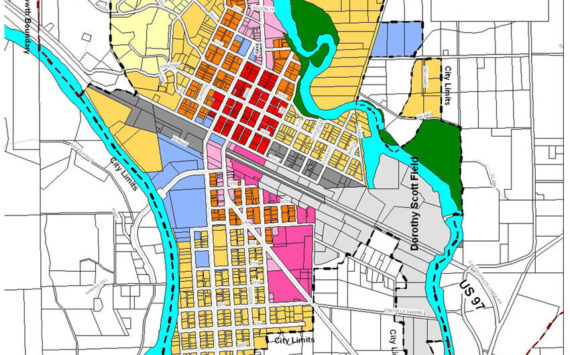 Each year it seems our city councils get bitten by the same bug – mosquitoes, or make that complaints from the constituents about mosquitoes.
Each year it seems our city councils get bitten by the same bug – mosquitoes, or make that complaints from the constituents about mosquitoes.
The little biters just don’t seem to be a problem until they’re a problem and by that time there isn’t a lot that can be done other than bombing them with insecticide. That’s something everyone would like to avoid and keep as our last line of defense.
There are plenty of good reasons to want to keep mosquitoes under control. Besides mosquitoes being an itchy pest, they can be a health hazard, especially now that more cases of West Nile Virus have been found in Washington State. Although there were no known human infections of West Nile this year, there were horses, birds and mosquitoes found in Grant, Yakima, Benton, Franklin and Spokane County this year with the virus. And, according to the state Department of Health, these 18 cases were based on very small samples due to a lack of funds to pursue greater testing.
Most of us would prefer we didn’t have pesticides bombed on us, so what is the answer. One answer that puts it in the hands of the people is a mosquito control district. Currently, according to a pamphlet entitled the Mosquito Messenger, most cities face the dilemma each year and if it isn’t budgeted for, then by biting time its may be too late. Omak found themselves in just such a situation and Oroville, Riverside and Okanogan, which rely on Omak’s spray permit, got caught up in their town’s failure to budget for mosquito control at budget time. Of course the bugs are easy to forget after they’re gone, but when they’re back they can be topic number one on the constituents minds.
So what does a mosquito control district do for a city? It can make paying for control more consistent with dedicated funds and spreads the cost over more people so that the price per those gaining the value of having fewer mosquitoes is less.
The pamphlet says, “Working together through a Mosquito Control District can provide mosquito-free neighborhoods for the whole season.”
A mosquito district would be a positive for any community and the surrounding area. First of all when treating for mosquitoes you normally within the boundaries of the city, as well as areas surrounding the town that are mosquito prone. In Oroville, surrounded by water, that means treatment needs to be in more than just in town or it won’t work. More people benefit from mosquito treatment than those who live in town so more people should be helping to shoulder the burden. Also another positive is biological methods are used in waterways early in the mosquito’s lifecycle making areal spraying rare. And these biological agents only attack mosquitoes, midges and gnats. The only negative we see here would be for birds and bats that include mosquitoes as part of their diet.
Perhaps the biggest positive of course is we wouldn’t have to rely on city’s whose budgets are tight and whose projects are many, to have to decide each year whether we were going to have mosquito control or not.
The voters will still have to decide if mosquito control is important enough to impose a small tax on themselves and only by a majority of votes in favor would it be levied. We think a mosquito control district is an idea whose time has come. Now it is up to your town to decide whether they want to be included as part of a district. If this is something you think would be a good idea let your local council people know – otherwise don’t complain next mosquito season.








Comments are closed.